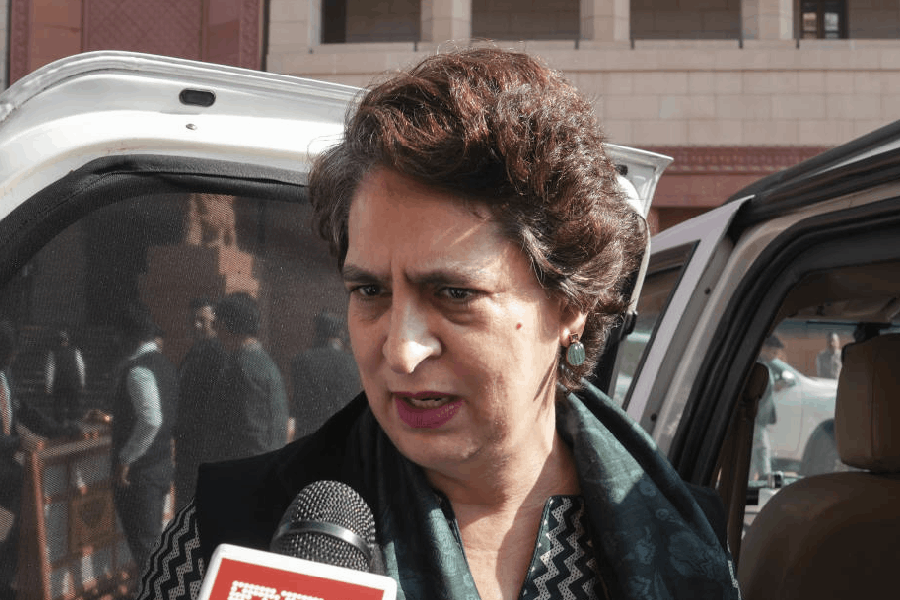In a bubble
Sir — There is an oft-repeated joke in American sitcoms and Hollywood films where characters are taken aback on realising that pork or ham actually comes from pigs and not the supermarket shelf. In a similar incident in India, when asked where his family buys various groceries from, a third grader filled in just one word for every item: Blinkit. While this may be an excellent advertisement for the delivery service, it shows just how disconnected the younger generations are getting from reality owing to such modern-day conveniences. A child who thinks fruits, vegetables, milk and so on come from Blinkit will not know the hard work that thousands in his or her country put in to produce and then sell those items. This is worrying.
Simantini Roy, Calcutta
Strong message
Sir — On May 7, India launched Operation Sindoor, a precision military operation targeting nine terrorist camps in Pakistan and Pakistan-occupied Kashmir. Executed jointly by the Indian army, navy and air force, the strikes were a direct response to the Pahalgam terror attack, which claimed 26 lives. The operation symbolised India’s zero-tolerance policy toward cross-border terrorism. India’s diplomatic outreach to countries like the United States of America and Russia underscored global accountability. Despite Pakistan’s retaliatory shelling, India’s calibrated response reinforced its commitment to national security and justice.
Chandan Kumar Nath, Barpeta, Assam
Sir — ‘Operation Sindoor’ — the name was a nod to those widowed at Pahalgam — targeted nine terror facilities linked to the Jaish-e-Mohammed, Lashkar-e-Taiba and Hizbul Mujahideen. The strike aimed to dismantle terrorist infrastructure used for planning attacks against India. The Union defence ministry described the operation as “focused, measured and non-escalatory”, deliberately avoiding Pakistani military installations. Given the scale of the strike, it might disrupt terrorist networks for a while but the actual culprits responsible for the Pahalgam massacre are still at large.
Bidyut Kumar Chatterjee, Faridabad
Sir — The armed forces deserve to be lauded. Operation Sindoor showed India’s military might and sent a clear message to those who wish to disrupt peace. The fact that the press briefing of the operation was done by two women officers was nothing short of historic. However, attention must be paid to the statement by the foreign secretary of India, Vikram Misri, who said the Pahalgam “attack was also driven by the intention to incite communal riots”. Unfortunately, the terrorists succeeded in this sinister agenda to some extent, thanks in no small part to irresponsible sections of the media. We should stay alert to rumours spread on television and social media and act with wisdom.
Md. Sabir Hussain, Arrah, Bihar
Sir — Each Indian is proud of the armed forces for destroying nine terror camps in Pakistan. The Pakistani State tries to hide its failures through such underhand terrorist tactics. It has been given a fitting reply.
Asim Boral, Calcutta
Sir — Operation Sindoor should act as a warning not just for Pakistan but also countries like Bangladesh. They should think twice before taking an aggressive stance against India.
Sujit Kumar Bhowmik, East Midnapore
Sir — No country can be a mute spectator in the aftermath of a terror attack. India has sent a strong message with Operation Sindoor. One should not forget how strongly Kashmiris stood up in favour of India and put forth a united front.
Bhagwan Thadani, Mumbai
Sir — India’s unequivocal response to the Pahalgam massacre is not the first time that New Delhi has sent a strong message to Pakistan. While New Delhi maintains its zero-tolerance policy against terror, both India and Pakistan must ensure that this situation does not escalate further.
Dimple Wadhawan, Kanpur
Stressful time
Sir — The tragic deaths of three young students — two NEET aspirants in Kota, Rajasthan, and a forensic science student of a private university in Mohali, Punjab — lay bare a systemic failure that India continues to ignore. Kota has seen 14 student suicides this year alone. The fact that one of the students died just before the NEET-UG exam underscores how relentless academic pressure, neglect of mental health and unrealistic expectations have created a lethal mix for many.
Recently, the Central Consumer Protection Authority issued notices to several coaching institutes for misleading advertisements and unfair trade practices. Many advertisers promised top ranks and assured selections without substantiating their claims. These promises, coupled with immense pressure, are often a trap for vulnerable students and anxious parents. The Rajasthan government’s proposal for the Rajasthan Coaching Centers (Control and Regulation) Bill, 2025 is a step in the right direction.
Khokan Das, Calcutta
Sir — According to a National Crime Records Bureau report, over 13,000 students committed suicide in 2023 alone. This is a matter of concern. Students taking competitive examinations face extreme societal and parental pressure to perform well. The government should set up mental health camps and offer counselling to support students’ mental health.
M.A. Qasmi, Mumbai
Sir — Over the last six months, there have been a number of suicides in reputed engineering colleges across India. This demands that counselling centres be set up at these institutions. A complete review of the higher professional education is also called for.
S. Kamat, Mysuru










